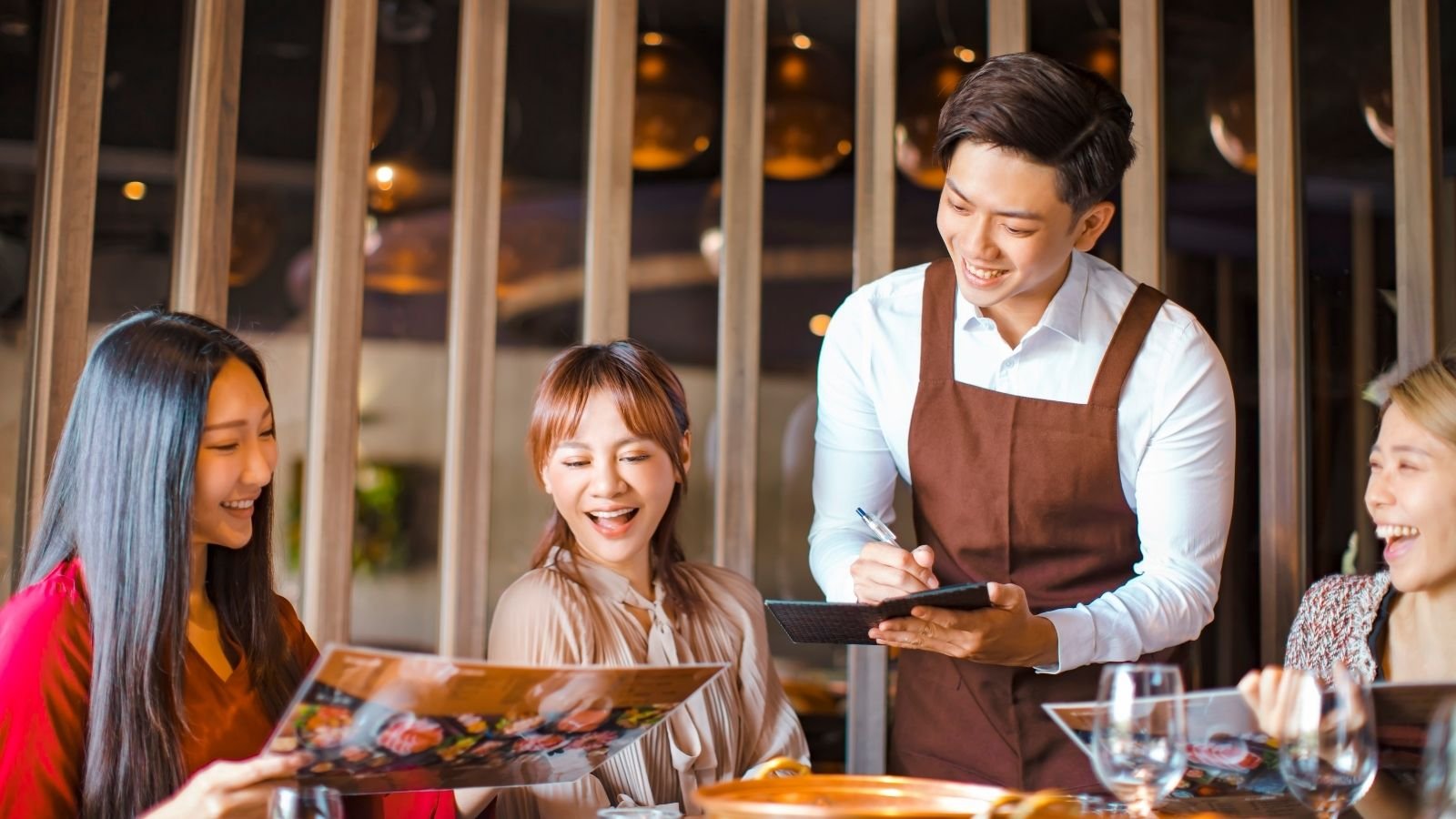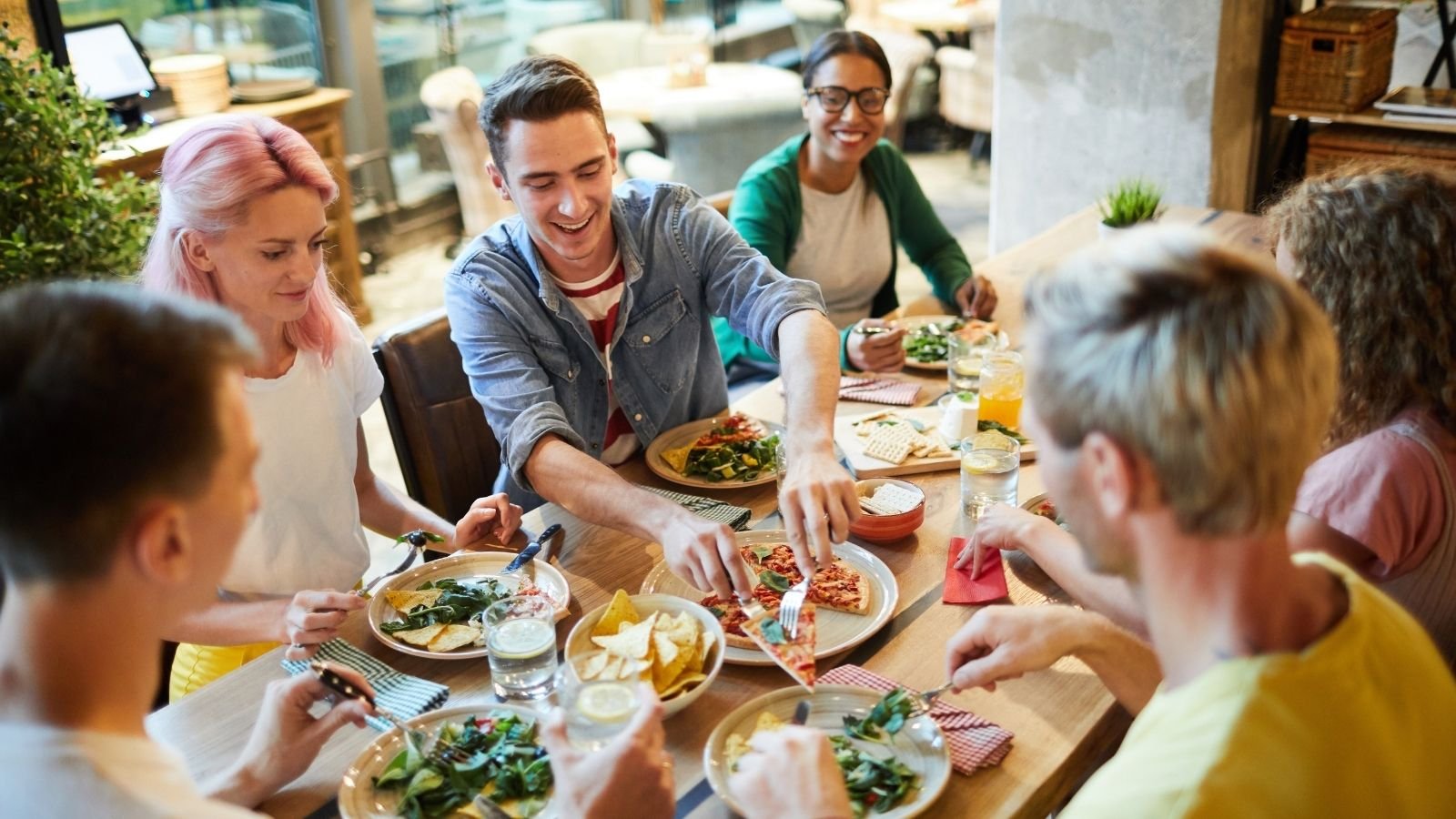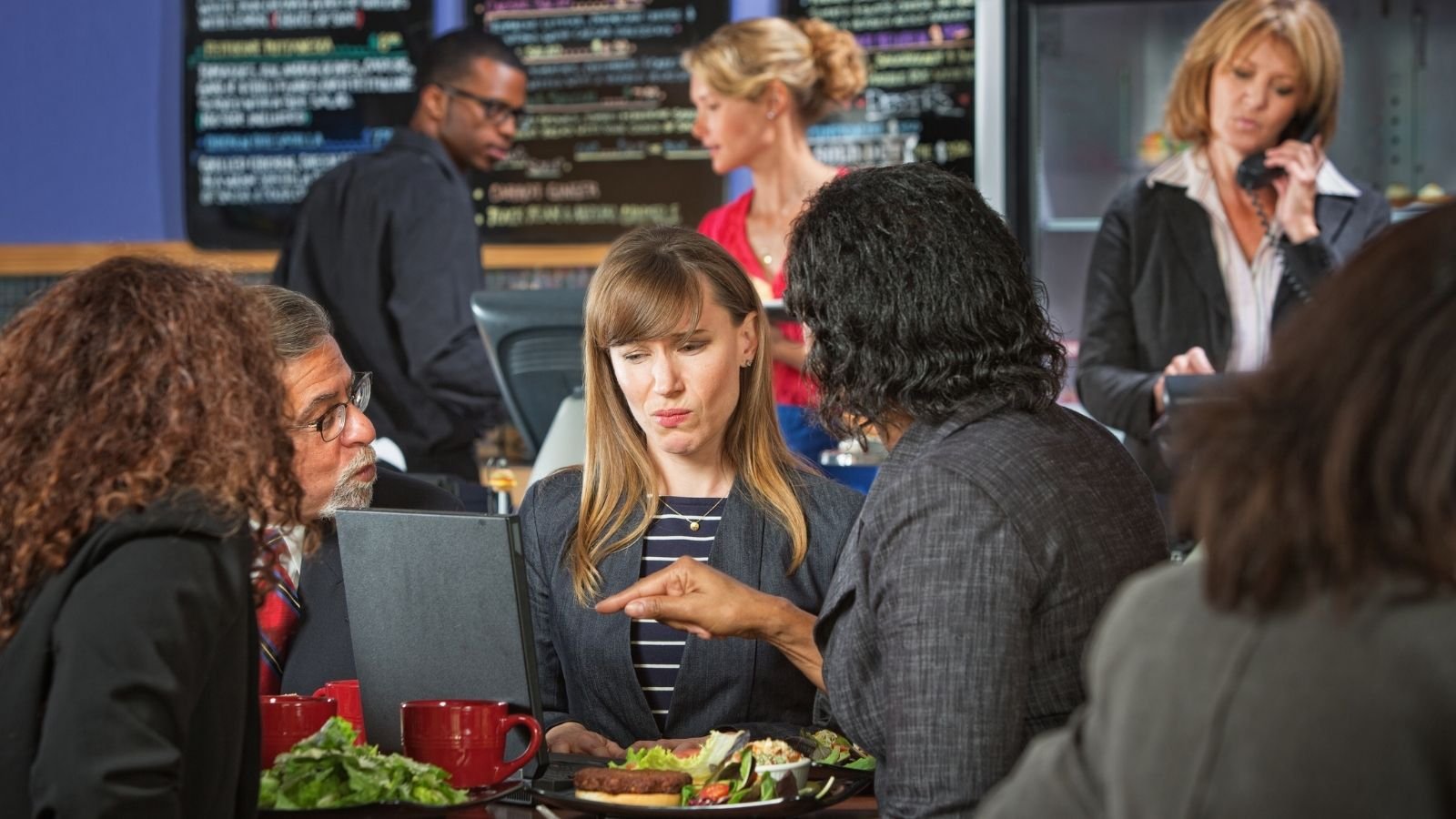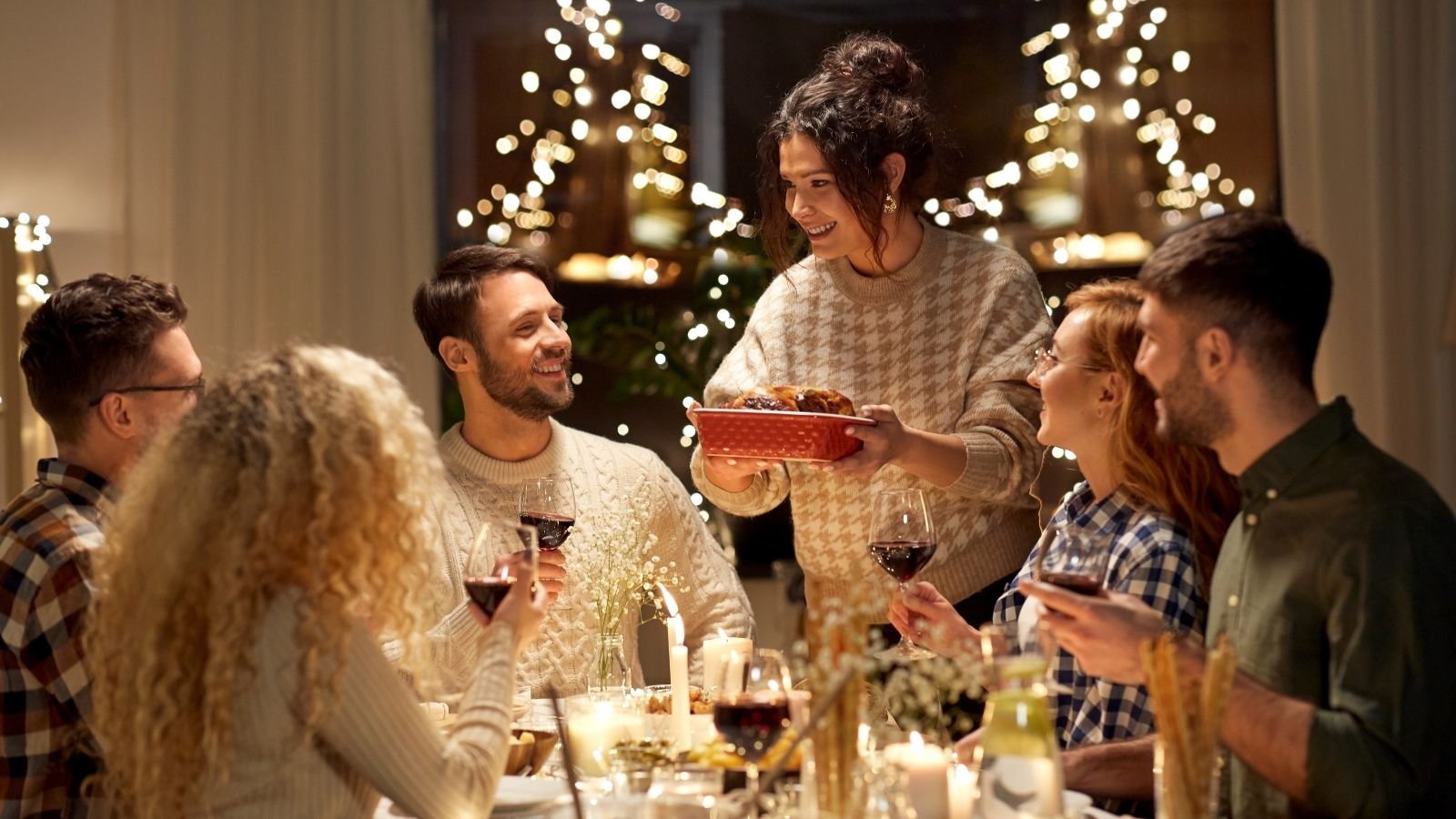While eating with company, you must always follow the general table etiquette rules, including keeping your elbows off the table and chewing with your mouth closed. However, there are finer and more delicate things you must remember while eating in large groups. Whether it’s a family gathering, a corporate event, or a casual night out with friends, eating meals with a large group can be a joyous occasion. However, small mistakes can ruin an enjoyable time and make it awkward.
Read on to learn 13 mistakes people make while eating in large groups.
Ignoring Dietary Restrictions

In a large group, it’s highly likely that someone has dietary restrictions, including allergies or intolerances, or is vegan or vegetarian. If you are the host or are responsible for arranging the group meal, the onus is on you to find out about these restrictions beforehand so you can prepare or order meals accordingly.
Ordering Food For Everyone

At a large table, refrain from ordering food for everyone unless you are the host or given the sole responsibility to order on behalf of everyone. This action can ruffle some feathers. Let people order for themselves.
Dominating The Conversation

You might be a good conversationalist, have extensive knowledge, or be known to keep people entertained. Still, it is rude to dominate conversations and not allow everyone a chance to speak. Dominating conversations can make others feel ignored and excluded. Try to keep a balance in the discussions, where everyone at the table gets equal opportunities to talk.
Monopolizing The Server’s Time

You would like to know whether the food you are served is farm-to-fresh or the restaurant’s ingredients are fair trade, but a large group setting isn’t the time or place. If you have concerns about the food being served at the restaurant or your host’s place, it is better to inquire earlier in the day or place your requests beforehand. Monopolizing the server’s time with such questions or special requests can slow down the service and affect others at the table.
Not Ordering The Right Quantity

In a large group, it is easy to overestimate or underestimate how much food is needed. Overordering can lead to food waste while underordering can leave guests hungry. It is best to find out beforehand how many people are attending and a rough estimate of their appetites to prepare or order food.
Using Phones At The Table

While it may be tempting to check the phone if your neighbors are disinterested in participating in a conversation or during a lull, it can appear rude and dismissive. Keep phones out of sight unless it’s an emergency, and give your full attention to the people at the table. As per a study by the University of British Columbia and the University of Virginia, people distracted by their smartphones had a less enjoyable time with their friends and family while eating out than those who didn’t focus on their smartphones.
Not Sharing Food Courteously

When sharing dishes, it’s important to consider others’ preferences and portions. Taking large portions of a shared dish or failing to pass food around can come across as selfish. If you feel certain dishes are appreciated more than others or their portions are less, reorder them or request the host do the same.
Showing Off

While sharing some liquor knowledge, be it wines or malts, can enhance the dining experience for everyone, overdoing it can come across as pretentious. It is advisable to share your knowledge with a fellow connoisseur at the table or avoid diving deep into such conversations.
Talking Over Others

In large groups, conversations can become chaotic, with everyone trying to speak simultaneously or talking over one another. This can often lead to misunderstandings; some quieter individuals might feel unheard or ignored. It is better to talk with your immediate neighbors for a more organized conversation or let others finish speaking before you talk.
Bringing Up Controversial Topics

Politics and religion usually get polarizing views and can quickly become arguments. In a large group where it is highly probable that people may have different opinions on these topics, it is best to avoid bringing them up to ensure people eat in harmony. Keep the conversation topics light and inclusive so that everyone enjoys the meal. As per the Quinnipiac University National Poll, 6 out of 10 young Americans said they hoped to avoid discussing politics while visiting family or friends on Thanksgiving.
Not Taking Care While Splitting The Bill

Splitting bills is a sensitive subject; hence, utmost care must be taken while splitting the bill. In most cases, when everyone in the group orders food of more or less the same value, it is wise to split the bill evenly after it has been thoroughly checked and the tips paid. However, there are times when breaking the bill can cause some resentment, especially if one or two people in the group have just ordered a salad or coffee. It’s unfair to the person who ordered a salad to be paying for expensive dishes for everyone. Hence, consider that while splitting the bill.
Not Offering To Help With Cleaning

If the meal is hosted at someone’s place, offering to help clean at the end is generally a polite gesture that is appreciated. Helping with the dishes, cleaning the table, and putting the leftovers in the refrigerator fosters goodwill and strengthens the bond. Failing to offer help with the cleanup can make the host feel overwhelmed and unappreciated.
Leaving Without Saying Goodbye

Leaving a gathering without saying bye to your host can be disrespectful. A polite farewell with a simple ‘thank you’ proves you appreciate your host’s efforts. If you need to leave early, it is wise to tell your host beforehand through a text so that your early exit does not come across as rude.
